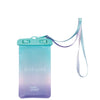
Help Us Save the Bees! Here's some incredible ways to get involved
One of the most incredible species on the planet is in danger. Small and fuzzy, with an admirable work ethic and a penchant for falling asleep in flowers, bees are a cornerstone species for the health of our planet.
This tiny creature is responsible for feeding the entire world. Without bees we would lose nearly every fruit, vegetable, and nut that make up our food supply. In fact, bees pollinate nearly one-third of the food that we eat. Can you imagine a world without almonds, apples, or berries? Neither can we.
But it doesn’t stop there. Without thriving plant life, there is no feed for livestock. which means that our milk, eggs, meat, and dairy would soon be in short supply. Clearly bees are an integral part of our ecosystem, and we need to do everything we can to save them.

We are proud of the high-quality natural ingredients in all of our products. Without bees, we couldn’t have access to many of the nutrient-rich ingredients that we include in all of our haircare formulas. This is why we have partnered with the Bee Conservancy, a U.S. based non-profit dedicated to protecting bee populations around the world. Fifty-cents of every Bee Kind special-edition Incredible Milk will go directly to building new hives to encourage bee population growth.
Why Bees are in Danger
The last decade has seen a sharp decline in bee populations, with huge colony die-offs reported every year. Of the more than 4,000 species of bees in North America, more than half are at risk of extinction. There are a number of factors responsible for the decline in global bee populations. Among these are habitat loss, climate change, chemical pesticide use, diseases and parasite, and invasive plant species.
Habitat loss is a factor for many endangered species, and pollinators such as butterflies and bees are no exception. While climate change is responsible for an increasing amount of this loss, industrial agriculture practices also contribute. Firstly, bees’ natural habitats are cleared to make way for crops. Once planted, these crops are typically heavily sprayed with chemicals in order to deter weeds and pests. Unfortunately, the use of these chemicals causes a heavy decline in the populations of many pollinators.
Many home gardeners also contribute unknowingly to the decline in bee populations by spraying dangerous pesticides and introducing non-native plant life. Bee species evolve according to the native plant life in their natural habitat. The introduction of non-native species can introduce diseases to bee populations. Furthermore, non-native plant species can quickly become invasive, killing off the bees’ natural food source.

How you can help save the Bees
You can join the fight to save the bees today by taking action. First and foremost, commit to going chemical free in your own yard. By eliminating the use of chemicals in your own garden, you are providing a safe haven for local pollinators.
If you want to encourage bee population growth, consider planting a pollinator garden. You don’t need a lot of space to create your very own bee garden, a window box or even a few potted plants on a fire escape will do. Check with your local nature conservancy to be sure that the plants you select are native to your area. Some safe bets for pollinator friendly food sources are salvia, butterfly weed, and milkweed. Every bottle of our Bee Kind special-edition Incredible Milk comes with a packet of flower seeds to help you get your pollinator garden started.
You can also create a bee bath. Simply fill a shallow dish with rocks or pebbles and fill with water. The rocks provide a safe place for pollinators to land and prevent drowning. For more ideas on ways that you can help save the bees today visit the Bee Conservancy Website.
Bees are an incredibly important part of our eco system, and they are in trouble. Without bees, we lose our most precious resources and put other species in danger. We need to work together in order to protect these important creatures and ensure the health of our planet.














